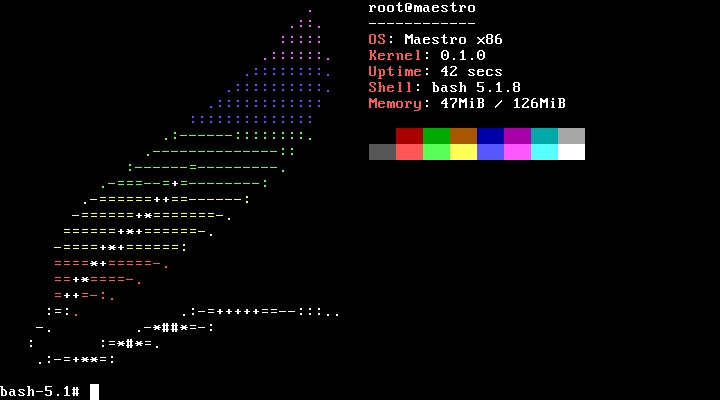Enter Maestro, a unix-like monolithic kernel that aims to be compatible with Linux in order to ensure wide compatibility. Interestingly, it is written in Rust. It includes Solfége, a boot system and daemon manager, maestro-utils, which is a collection of system utility commands, and blimp, a package manager. According to Luc, it’s creator, the following third-party software has been tested and is working on the OS: musl (C standard library), bash, Some GNU coreutils commands such as ls, cat, mkdir, rm, rmdir, uname, whoami, etc… neofetch (a patched version, since the original neofetch does not know about the OS). If you want to test it out, fire up a VM with at least 1 GB of ram.



It was the first fully working kernel licenced under a FOSS licence. So it was the first time someone could run a 100% open source OS.
At least since maybe some really old mainframe back when stuff came with source code